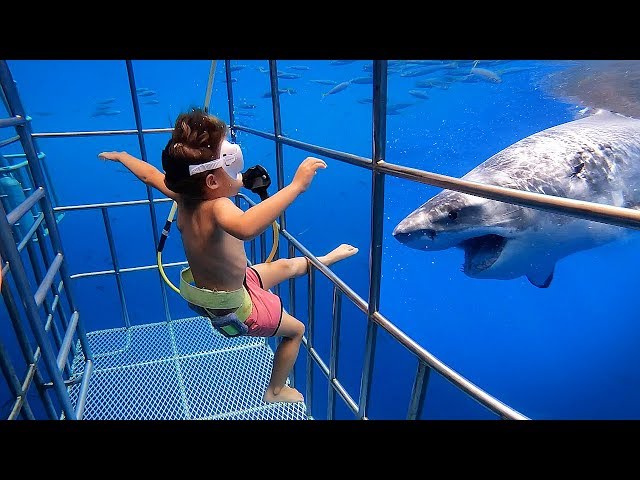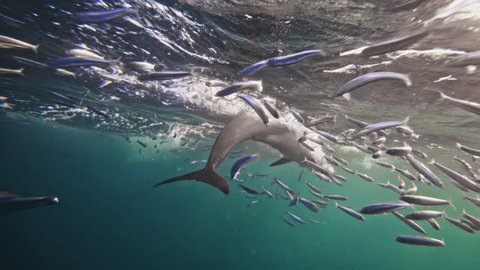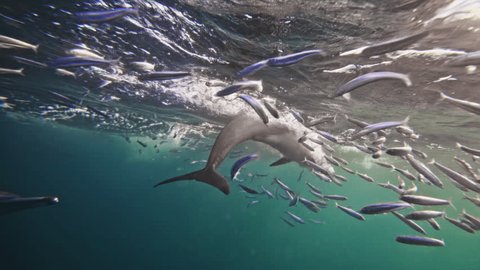Ocean Guardians: Thrilling Sea Adventures That Protect Our Seas

The ocean. Just the word conjures images of vast blue expanses, the rhythmic crash of waves against the shore, and the invigorating scent of salt in the air. Beneath the surface lies a world teeming with life, a complex ecosystem as fragile as it is breathtaking. As adventurous travelers, we are drawn to the ocean's raw power and untamed beauty, but with that attraction comes a responsibility: to protect the very environments we seek to explore. At Vistalocation.com, we believe that thrilling adventure and tangible conservation efforts can, and should, go hand in hand. Become an Ocean Guardian – embark on unforgettable sea experiences that directly contribute to the health and preservation of our oceans. We are committed to supporting tour operators with valid conservation accreditations such as Fair Trade Tourism, ensuring your adventures are both exhilarating and ethically sound.
A breathtaking drone shot of great white sharks circling a cage diving boat in Gansbaai, South Africa. The image showcases the sharks' natural beauty in the golden hour's soft light, emphasizing responsible and respectful observation in their habitat.
1. Great White Shark Cage Diving in Gansbaai, South Africa
Imagine descending into the depths of the ocean, the cold water pressing against your skin, your heart pounding with anticipation. You're in Gansbaai, South Africa, known as the "shark capital of the world," and you're about to come face-to-face with one of the ocean's most awe-inspiring apex predators: the great white shark.
Cage diving in Gansbaai is an adrenaline-fueled experience unlike any other. The initial apprehension quickly gives way to pure, unadulterated awe as the first shark appears, a majestic silhouette gliding through the water. Seeing these creatures up close, in their natural environment, provides a crucial understanding of their role in the ocean ecosystem – a role often misunderstood and unfairly demonized. However, this adventure must be undertaken with responsibility and respect.
It's crucial to choose operators who prioritize the well-being of the sharks and the marine environment. Responsible shark diving practices avoid baiting or direct interaction that disrupts the sharks' natural hunting behavior. These practices ensure that these magnificent animals are observed in a way that does not alter their natural behavior.
Conservation Focus:
One of the leading organizations in great white shark research and conservation is the Dyer Island Conservation Trust (DICT). By participating in these dives with responsible tour operators like Marine Dynamics in Gansbaai, you're directly contributing to scientific data collection. DICT utilizes data collected from these expeditions for tagging, population studies, and behavioral analysis, offering invaluable insights into these apex predators. Marine Dynamics actively supports DICT's efforts and is committed to ethical tourism practices, potentially holding Fair Trade Tourism certification. This certification ensures that the operator adheres to fair labor practices, environmental responsibility, and contributes to the local community.
 An underwater photograph capturing great white sharks swimming peacefully in their natural habitat. The image highlights their power and curiosity without aggressive or exploitative imagery.
An underwater photograph capturing great white sharks swimming peacefully in their natural habitat. The image highlights their power and curiosity without aggressive or exploitative imagery.
2. Exploring the Norwegian Fjords by Zodiac Boat
Trade the warm waters of South Africa for the breathtaking landscapes of Norway, where you can embark on a Zodiac boat expedition through the stunning fjords. Focus your adventure on the remote and less-visited Lysefjord, a hidden gem that offers an unparalleled sensory experience.
Imagine the crisp, clean air filling your lungs as you navigate the narrow passages, the towering granite cliffs reflecting in the mirror-like surface of the water. The roar of cascading waterfalls echoes through the fjord, and the thrill of being so close to nature is palpable. A Zodiac boat allows you to access hidden waterfalls, explore secluded coves, and witness the fjord's beauty from a unique perspective.
Keep an eye out for seals basking on rocky outcrops, majestic white-tailed eagles soaring overhead, and playful porpoises swimming alongside the boat. The fjord ecosystem is a delicate balance of life, and it's important to minimize disturbance to these sensitive habitats. The fjords are a unique environment formed by glaciers, creating a habitat of deep waters, steep cliffs and rich marine life. However, human activities can have significant impact on this fragile environment, like pollution from boats or disturbing wildlife.
Conservation Focus:
Responsible boating practices are paramount in protecting the delicate fjord environment. This includes avoiding littering, adhering to speed limits, and staying away from sensitive areas. Choosing tour operators in Lysefjord who are deeply committed to responsible wildlife tourism is crucial. Look for certifications such as the Nordic Swan Ecolabel, which indicates a commitment to minimizing environmental impact. These operators prioritize educating passengers about the fjord's ecology and taking steps to reduce their footprint, making your experience sustainable and respectful.
3. Sardine Run Expedition, South Africa
Venture back to the South African coastline, this time to the Wild Coast near Port St Johns, to witness one of the greatest marine spectacles on Earth: the Sardine Run. This annual event is more than just a visual spectacle; it's a critical component of the entire Southern African marine ecosystem.
Picture this: millions of sardines packed into shimmering shoals, stretching for kilometers, pursued by a frenzy of predators – sharks, dolphins, whales, and seabirds. The Sardine Run is a feeding frenzy of epic proportions, a ballet of life and death played out on a grand scale.
Responsible viewing practices are essential to minimize disturbance to the marine life during the run. Refrain from using flash photography, as it can disorient the wildlife, and maintain a safe distance from the sardine shoals to avoid disrupting their natural movement.
Conservation Focus:
Support local guide companies like African Waters in Port St Johns, who demonstrably prioritize marine life protection and ongoing research during the Sardine Run. These companies actively contribute to data collection on sardine movement, predator behavior, and other vital ecological aspects, such as water temperature and currents. By joining their expeditions, you can directly contribute to this scientific effort, becoming a citizen scientist and playing an active role in understanding this complex marine event. Look for operators who partner with marine biologists or conservation organizations to ensure your participation contributes to meaningful research.
Conclusion
The allure of the ocean is undeniable, but with that allure comes a responsibility to protect its fragile ecosystems. By choosing responsible travel options, you can have a profoundly positive impact on marine conservation. These specific adventures directly contribute to the protection of our oceans, supporting research, promoting sustainable practices, and raising awareness about the importance of marine life.
Vistalocation.com is your go-to platform for booking genuinely eco-friendly and impactful adventures. We are committed to vetting responsible tour operators, ensuring your travels align with your values.
Support organizations like Dyer Island Conservation Trust and responsible local researchers by donating to their projects. Further, make sure to support eco-conscious tour operators in Lysefjord and Port St Johns through bookings.
 A panoramic sunset shot of the Lysefjord, capturing the tranquility and enduring beauty of the marine environment. The warm light and gradients of color create a mood that inspires both relaxation and stewardship.
A panoramic sunset shot of the Lysefjord, capturing the tranquility and enduring beauty of the marine environment. The warm light and gradients of color create a mood that inspires both relaxation and stewardship.
Become an Ocean Guardian. Embark on a thrilling sea adventure that protects our seas, with Vistalocation.com.